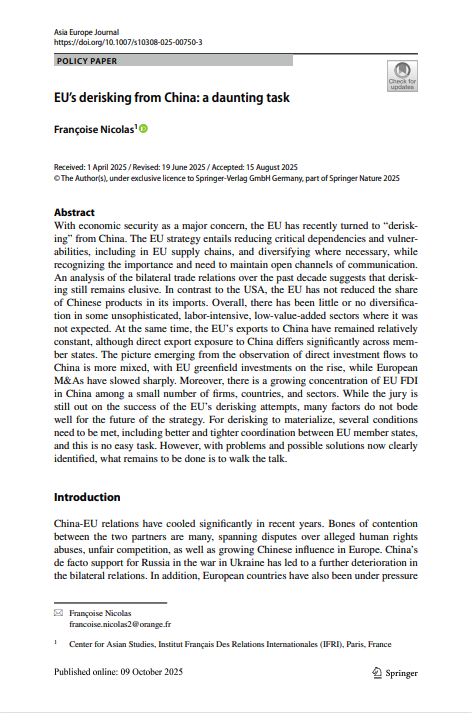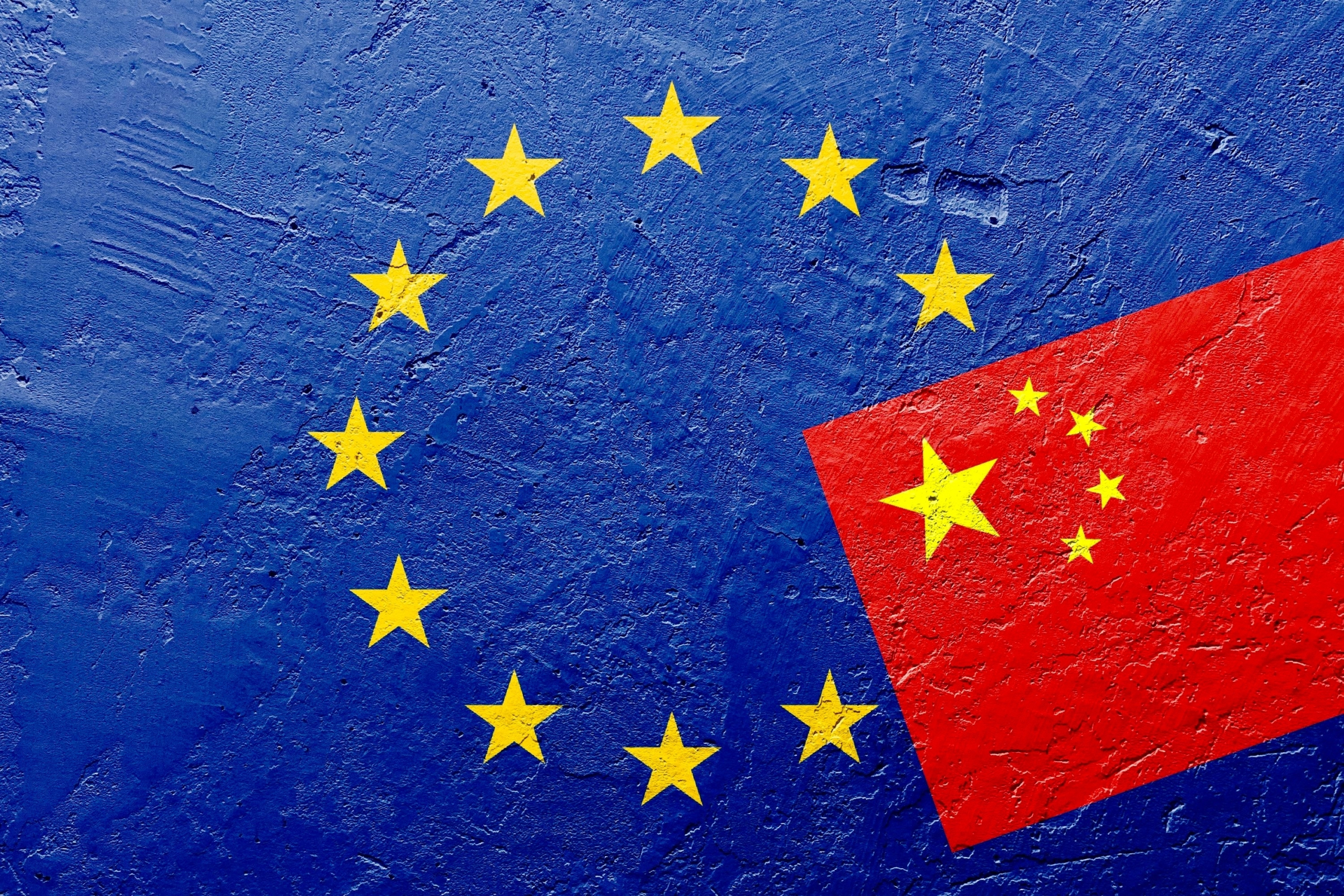EU’s Derisking From China: A Daunting Task

With economic security as a major concern, the EU has recently turned to “derisking” from China. The EU strategy entails reducing critical dependencies and vulnerabilities, including in EU supply chains, and diversifying where necessary, while recognizing the importance and need to maintain open channels of communication.

An analysis of the bilateral trade relations over the past decade suggests that derisking still remains elusive. In contrast to the USA, the EU has not reduced the share of Chinese products in its imports. Overall, there has been little or no diversification in some unsophisticated, labor-intensive, low-value-added sectors where it was not expected. At the same time, the EU’s exports to China have remained relatively constant, although direct export exposure to China differs significantly across member states. The picture emerging from the observation of direct investment flows to China is more mixed, with EU greenfield investments on the rise, while European M&As have slowed sharply. Moreover, there is a growing concentration of EU FDI in China among a small number of firms, countries, and sectors. While the jury is still out on the success of the EU’s derisking attempts, many factors do not bode well for the future of the strategy. For derisking to materialize, several conditions need to be met, including better and tighter coordination between EU member states, and this is no easy task. However, with problems and possible solutions now clearly identified, what remains to be done is to walk the talk.
Nicolas, F. (2025, October). EU’s Derisking From China: A Daunting Task. Asia Europe Journal, 23 (2-3). https://doi.org/10.1007/s10308-025-00750-3

Available in:
Themes and regions
Share
Related centers and programs
Discover our other research centers and programsFind out more
Discover all our analyses
China’s Strategy Toward Pacific Island countries: Countering Taiwan and Western Influence
Over the past decade, China has deployed a diplomatic strategy toward the Pacific Island Countries (PICs). This strategy pursues two main objectives: countering Taiwan's diplomatic influence in the region and countering the influence of liberal democracies in what Beijing refers to as the "Global South."

Opening up the G7 to South Korea to Address Contemporary Global Challenges
The G7’s global influence has diminished as powers like China reshape international governance through initiatives such as BRICS and the Shanghai Cooperation Organisation (SCO). With the G7 now representing just 10 per cent of the world’s population and 28 per cent of global GDP, its relevance is increasingly questioned.
Expanding SPDMM as a pivotal institution in the Pacific – A French perspective
The South Pacific Defence Ministers’ Meeting (SPDMM) is the only forum that brings together defense ministers from the wider South Pacific — including Chile, which is hosting it for the first time. This heterogeneous group of countries with varying resources, capacities, and interests — Australia, Chile, Fiji, France, New Zealand, Papua New Guinea (PNG), and Tonga — are united by their shared determination to strengthen cooperation on maritime security and humanitarian assistance and disaster relief (HADR) activities.
Sri Lanka’s NPP Government. From System Change to Structural Compliance
In September 2024, a relative outsider to Sri Lanka’s two-party-dominated political system, Anura Kumara Dissanayake, won the presidential elections. The anti-establishment, populist movement he represented, the National People’s Power (NPP), went on to receive an overwhelming mandate in the November 2024 general elections, winning 159 seats in a 225-member parliament.










